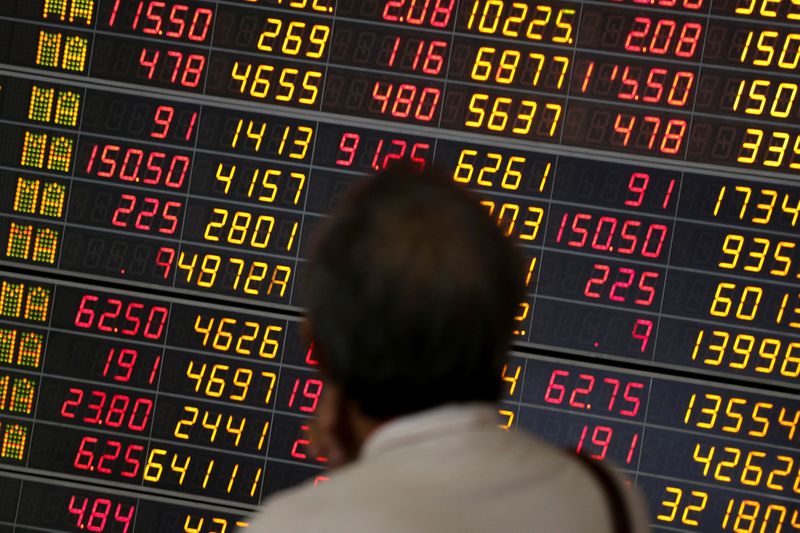By Patturaja Murugaboopathy
(Reuters) - Despite a strong start to this decade in 2010, emerging market stocks underperformed developed market peers and were weighed down by events such as the Chinese market sell-off, debt crises in Turkey and Argentina and the Sino-U.S. trade war.
MSCI's index of emerging market stocks has risen just 15% since the start of 2010, while the MSCI World index delivered a massive 104% return in that period.
Thailand, Philippines and Taiwan led emerging markets, with gains of more than 50% each over the past decade, while Greece, Turkey and Czech Republic bottomed the list with negative returns.
The period from 2010 to this December also saw turbulent foreign portfolio flows into emerging markets as overseas investors balked during periodic swings in risk appetite, including a period of rising U.S. interest rates as major central banks began to unwind their crisis-era stimulus.
Graphic: EM valuations countrywise https://fingfx.thomsonreuters.com/gfx/mkt/12/10137/10048/EM%20each%20country's%20PE.jpg
Graphic: EM GDP growth https://fingfx.thomsonreuters.com/gfx/mkt/12/10138/10049/EM%20GDP%20growth.jpg
Despite the volatility, share prices broadly kept pace with earnings growth.
The MSCI EM index's forward 12-month price-to-earnings ratio was at 11.8 at the end of November, compared with its 10-year average of 10.9. Its lowest was 8.5 in October 2011, and the high was 13.09 in January 2018.
Graphic: MSCI EM P/E ratio https://fingfx.thomsonreuters.com/gfx/mkt/12/10140/10051/EM%20pe%20ratio.jpg
China and Poland saw the biggest drop in their P/E ratios in the past decade, making them cheaper. Thailand saw the biggest rise in the valuation ratio.
Russia and Czech Republic lead the dividend yields league table, while India had the lowest yield. Russia's dividend yield rose to 6.8% at the end of November, compared with 1.6% at the start of 2010. Chile's dividend yield also rose to 3.6% from 1.3% in that period.
Graphic: EM change in corporate debt https://fingfx.thomsonreuters.com/gfx/mkt/12/10141/10052/MSCI%20debt%20growth.jpg
Graphic: EM dividend yield https://fingfx.thomsonreuters.com/gfx/mkt/12/10142/10053/MSCI%20dividend%20yield.jpg
EM firms' profits slowed after they posted solid growth of 40% in 2010, according to a Reuters analysis of 4402 firms, due to a combination of factors such as a fall in commodity prices, slowing demand for tech products and the U.S.-China trade dispute.
The analysis showed that EM firms' profit growth lagged those of developed market firms for most part of the decade
China, Mexico and Thai firms had the highest median profit growth of 10% or more for the past 10 years, while Hungary, Egypt and Turkey had negative median growth.
Graphic: MSCI EM index vs World index https://fingfx.thomsonreuters.com/gfx/mkt/13/14/14/MSCI%20EM%20index%20vs%20World%20index.jpg
Graphic: MSCI Emerging Markets country indices performance in this decade https://fingfx.thomsonreuters.com/gfx/mkt/13/19/19/MSCI%20Emerging%20Markets%20country%20indices%20performance%20in%20the%20decade.jpg
Graphic: EM vs DM profit growth https://fingfx.thomsonreuters.com/gfx/mkt/13/25/25/EM%20vs%20DM%20profit%20growth.jpg
Yet, emerging market firms also cut down their debt levels and slowed their expansion plans due to falling demand for their exports.
